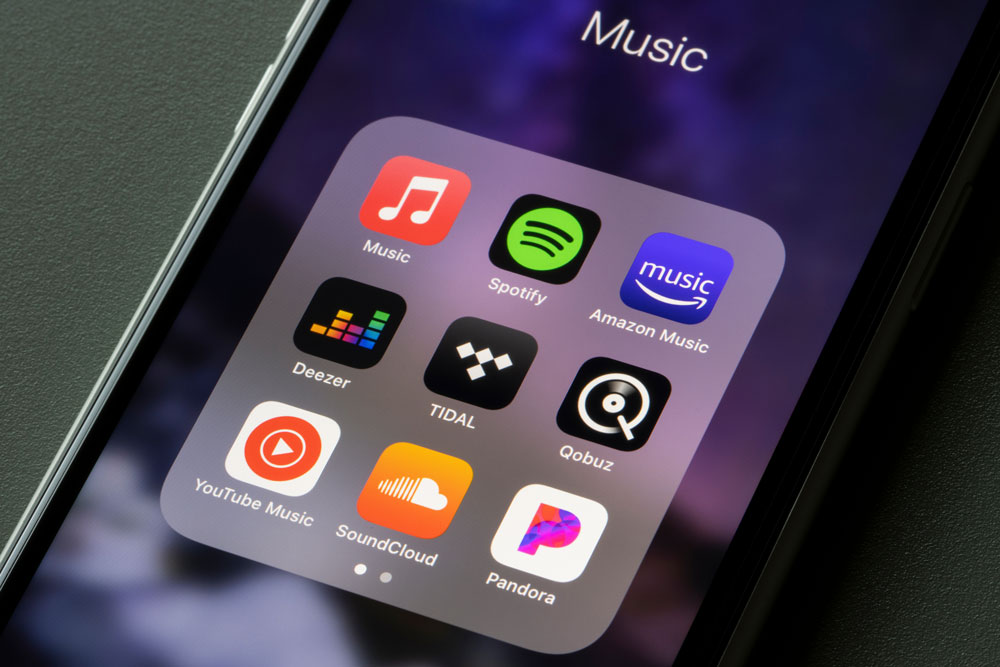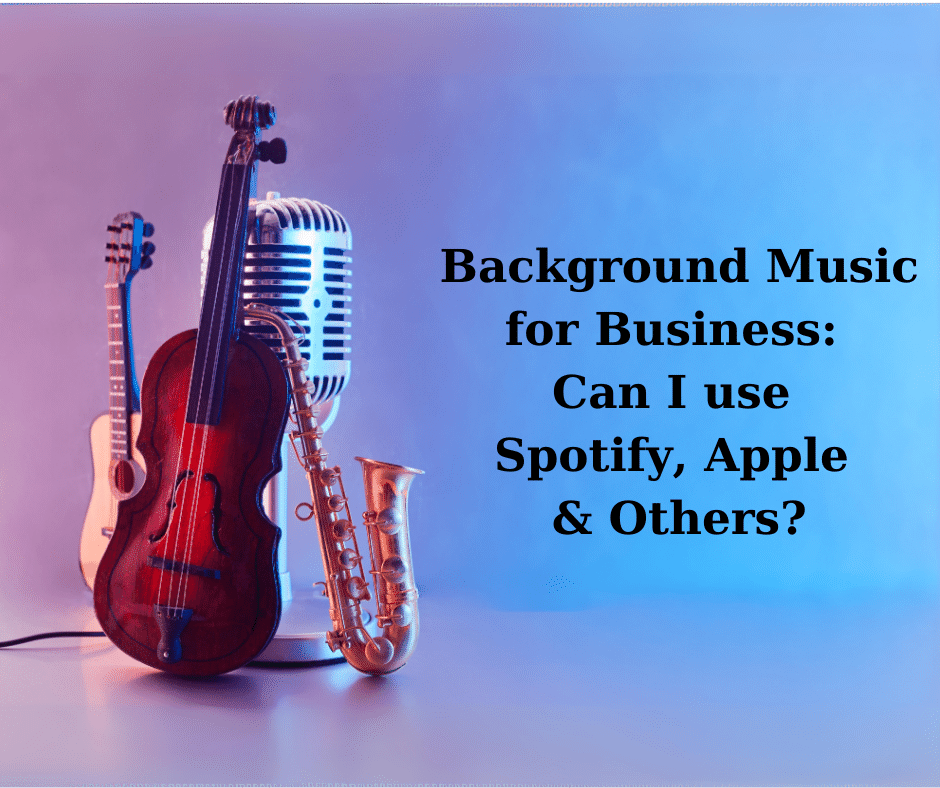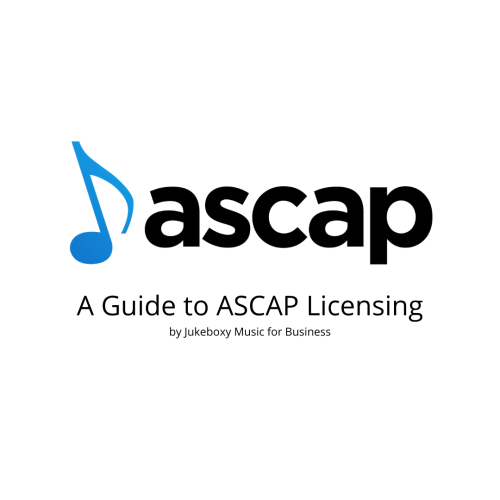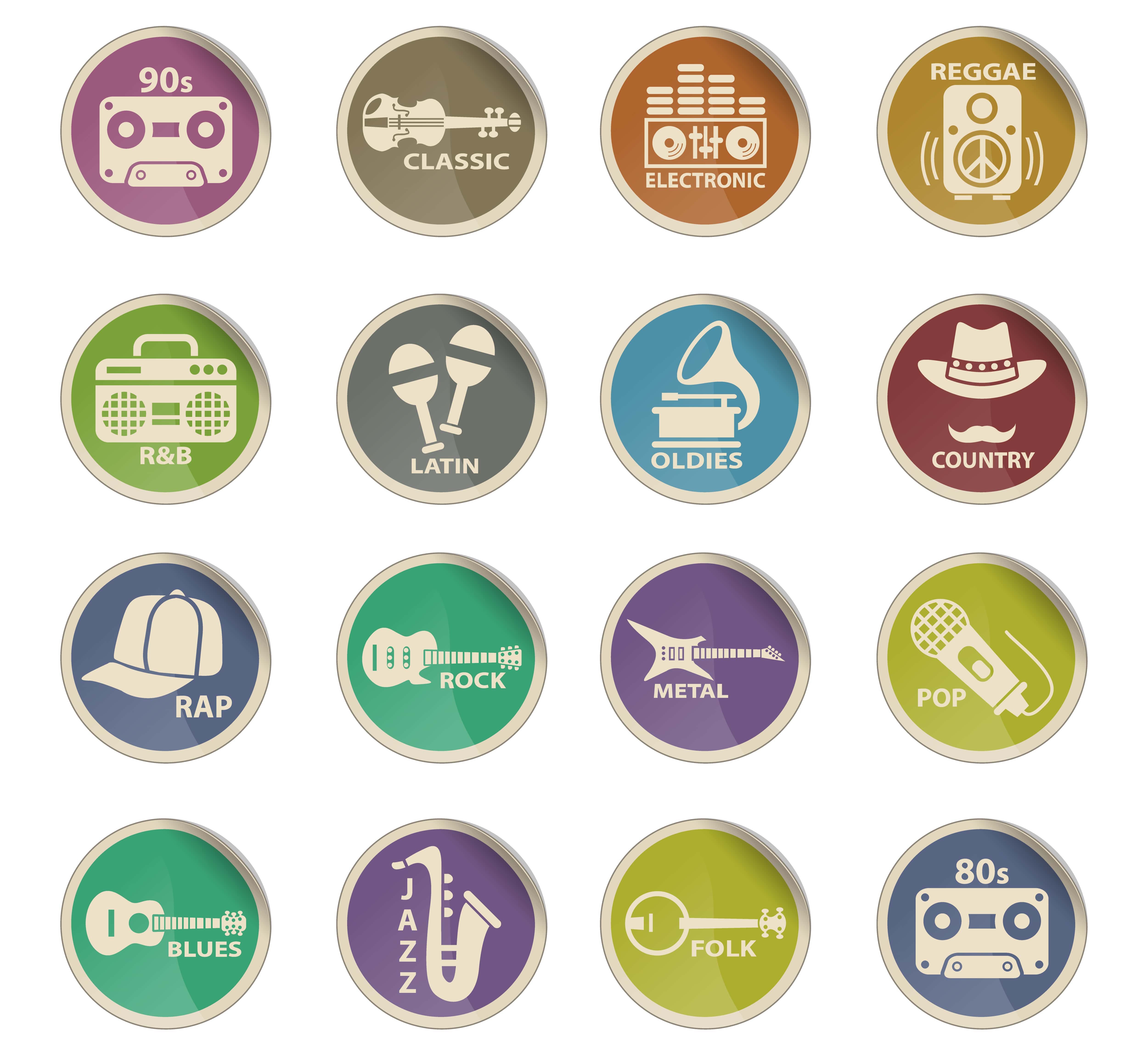
We’ve all heard the old saying, “music is the lifeblood of a business.” If you’re worth your salt in the corporate world, you’ve made the business decision to use copyrighted music in your business, and you likely have invested in the proper equipment to do so. This is because you probably know that consumer experience changes with background music. The following facts show how music affects your business
- if customers feel the music is well selected, 40% of them spend more time in the store, which leads to more sales
- 31% return to the store if they enjoy the music
- about half of the customers leave the business establishment because the music selection bothers them, and a third of them do not return ever
- the best retailers in the world agree that music enhances their brand personality
It doesn’t matter if you operate a restaurant, a hotel, a retail store, or you need music for a bar – background music is definitely a great way to boost your customer experience. Your employees and customers will both appreciate a great in-store musical atmosphere.
That’s probably no surprise to you. However, it may come as a surprise to you that 80% of business owners are unaware that B2C music services are not licensed for commercial purposes. It means that Spotify, Apple Music, or Pandora cannot be played in restaurants, gyms, and stores.
The rise of streaming music services like Spotify and Apple Music has put an end to the days of illegally downloading music. On the other hand, it’s not widely known that streaming background music for business purposes is subject to entirely different rules than listening to music at home. How familiar are you with the legal background of music commercial use?
These questions come up all the time when this topic arises:
“Can I play Apple Music as background music in my coffee shop?”
“It is legal for my business to play Pandora in my gym, isn’t it?”
“Can I use Spotify playlist in my bar to play background music for my guests?”
In a nutshell… obviously not! Let’s look at the hard facts. With the ongoing war against illegal music streams, it’s more important than ever for businesses to be aware of the legal options available to them.
Background music in business and copyright laws
Music streaming services are legally required to pay artists fair license fees to use their musical work under copyright laws. Pandora, Apple Music, Spotify, YouTube, Amazon Music, and other mainstream streaming services meet the requirements for private music playback.
Nevertheless, you should be aware that these B2C streaming services don’t pay the higher license fees, corresponding to the broadcasting rights, for the public reproduction of music in a business. Thus, you can use these streaming services at home, but you cannot use them in a commercial setting, such as a shop or in a bar. These services do not belong in a commercial context since they only pay artists a small amount per stream, a micro compensation per each unique listener at home.
According to the law, music may not be broadcast in public places like a hotel, gym, café, or store without a specific license. Therefore, businesses cannot use Spotify, Pandora, Apple Music, or any other personal use music service in their establishments. Doing so may result in severe penalties, such as monetary fines ranging from a few thousand dollars to more than a hundred thousand dollars.
Per song!
Companies are sued frequently by ASCAP (American Society of Composers, Authors, and Publishers), BMI (Broadcast Music, Inc.), GMR (Global Music Rights), or SESAC (The Society of Composers, Authors and Music Publishers of Canada). Why? Because they ignore the law by using personal use music services and don’t acquire the necessary licenses for background music for business. Business owners who choose to play unlicensed music on their premises without permission can be held accountable for $150,000 in damages for each song played.
For your customers and employees to enjoy your music in public places, you should have a Public Performance License (PPL). Considering the high fines, it’s not worth the risk of a few dollars a month to get a business license for streaming. We’ll tell you below how much the legal way will cost you. Keep reading!
Bonus Read: What is a BMI licensing for businesses, and why do businesses need to comply with Copyright Law?
How to get peace of mind: use a legal music service in your business

Obtaining the public performance license for playing music in a business can be accomplished in several ways. Depending on your needs and budget, you can choose the right path:
- Business owners have traditionally had to negotiate licensing fees directly with each major Performance Rights Organization (PROs). Over $2000 per year is easily spent on this option, and it requires a great deal of work and effort.
If you would like to obtain blanket music licenses for businesses offered by all four PROs, you can subscribe to a licensed business music provider for a convenient monthly subscription fee.
If you’re looking for convenience and cost savings, there is no doubt which option is the best.
Save thousands of dollars with Jukeboxy
… and prevent copyright infringement.
Solving the above problem is relatively straightforward. You need to find the best Spotify music alternatives for your business. Rather than making you search for too long, we will show you the answer. The solution is to subscribe to Jukeboxy, a licensed business music provider, which you can try for 14-days for free.
Over 350 professionally curated playlists and 45+ million fully licensed songs are included in the Jukeboxy subscription package priced at $29.99 per month. That sounds a whole lot better than thousands of dollars a year, doesn’t it?
The perfect three-in-one: low price, in-store audio messaging, legal business music

Using a web browser or apps, users can mix unlimited playlists, schedule background music by day-part, and control background music remotely with Jukeboxy. The app lets users manage multiple accounts from one platform, send audio messages to play in-store for marketing purposes, and create their own playlists based on moods, genres, and decades. You can also use Jukeboxy in SONOS speaker systems.
Can I Play Spotify in My Restaurant?
Playing Spotify in a restaurant or any other commercial establishment is generally not permitted under Spotify’s terms of service. Here’s why:1. Spotify’s Terms of Service:
Spotify is intended for personal use only. According to their terms, the service is designed for private, non-commercial use. This means playing Spotify in a public setting like a restaurant violates these terms.
2. Licensing and Copyright Laws:
Commercial establishments need to comply with public performance rights. When you play music in a business, you need to have the appropriate licenses from performing rights organizations (PROs) such as ASCAP, BMI, and SESAC in the United States. These organizations ensure that composers, songwriters, and publishers get paid when their music is played publicly.
3. Business Music Services:To legally play music in a restaurant, you should use a service specifically designed for commercial use. These services provide the necessary licenses and often offer features tailored to business needs, such as curated playlists and background music solutions.
4. Consequences of Non-Compliance:Playing music without the proper licenses can result in significant fines and legal action. Performing rights organizations actively monitor businesses to ensure compliance, and they can take legal steps to enforce licensing requirements.
Using a service like Jukeboxy Music ensures that you are compliant with copyright laws, providing a seamless and legal music experience for your customers.
Jukeboxy’s expert music curators have designed playlists for businesses of all sizes, including Fortune 500 organizations, and are happy to help you create the fitting soundtrack for your company. Jukeboxy offers background music solutions for hotels, coffee shops, spas, grocery stores, restaurants, retail stores, practically all types of businesses.
Final thoughts
Goldman Sachs forecasts a $75 billion streaming market by 2030, with a consumer market increasing from 370 million to 1.2 billion paying customers. If enough people become aware of and adopt the B2B model, the sector’s leadership will be able to bring a significant amount of change in the music business globally, and musical artists, composers, songwriters will receive the royalties they deserve.








